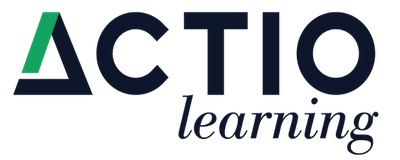Aligning training – and ultimately learning and performance – with job families is immensely important when delivering effective learning and development (L&D) initiatives. By organizing roles and related competencies into distinct job families, organizations will have a framework that streamlines learning, ensures targeted skill development, and supports career progression.
Job families are a guiding compass for identifying and developing knowledge and skills essential to role-specific performance. Organizations can use such families to identify skills and competencies shared by the roles of the job family, enabling the design and implementation of tailored L&D programs that address the specific skill gaps within each family. From technical proficiencies to ‘soft’ skills, job families can enable a systematic and focused approach to skill development, ensuring employees receive the necessary training to excel in their respective roles.
Organizations benefit greatly from Job families that provide a structured career path and progression framework. By categorizing roles based on related performance, competencies, and skill levels, employees can visualize precise career trajectories within their chosen job family. This visibility creates a sense of direction and purpose, motivating employees to pursue continuous learning and development to advance within their families. The clarity offered by job families promotes employee engagement, loyalty, and long-term commitment to the organization.
Role-specific career paths and progression frameworks enable succession planning processes critical to organizational development and are essential for L&D to understand and support. Job families play a pivotal role in identifying potential successors and providing a roadmap for their development. Organizations can identify high-potential employees by evaluating competencies within each family and tailor development programs to groom them for future leadership positions. Job families enable organizations to nurture talent and ensure smoother transitions during change or organizational growth.
While succession planning within a job family is critical, cross-functional mobility is essential for organizational agility and employee growth. Job families provide a foundation for employees to explore opportunities beyond their current roles while leveraging existing competencies. Classifying roles and skills within families facilitates the identification of transferable skills and opens doors for employees to pursue lateral moves or transitions into different job families. This fosters versatility broadens employees’ skill sets, and enhances their overall value to the organization.
Job families enable organizations to design and deliver targeted L&D initiatives that cater to specific job roles and competencies. By understanding each family’s unique requirements and challenges, L&D professionals can develop customized programs that directly address their needs. Allocating training resources effectively will help maximize the impact of L&D investments. By aligning L&D initiatives with job families, organizations can foster a culture of continuous learning and drive overall performance improvement.
From an organizational development standpoint, establishing job families is crucial for effective L&D practices. By providing a structured framework for skill development, career progression, succession planning, cross-functional mobility, and targeted learning initiatives, job families lay the groundwork for sustainable organizational growth and employee success. As organizations navigate the complexities of the modern business landscape, leveraging the power of job families becomes increasingly essential to drive employee engagement, retention, and performance.
By recognizing the value of job families and integrating them into L&D strategies, organizations can foster a culture of continuous learning to empower employees to thrive in their roles. They support building a versatile workforce prepared for future challenges and opportunities. Organizational development efforts guided by job families unlock the potential for long-term success and create a foundation for a resilient and agile organization in an ever-evolving world of work.


